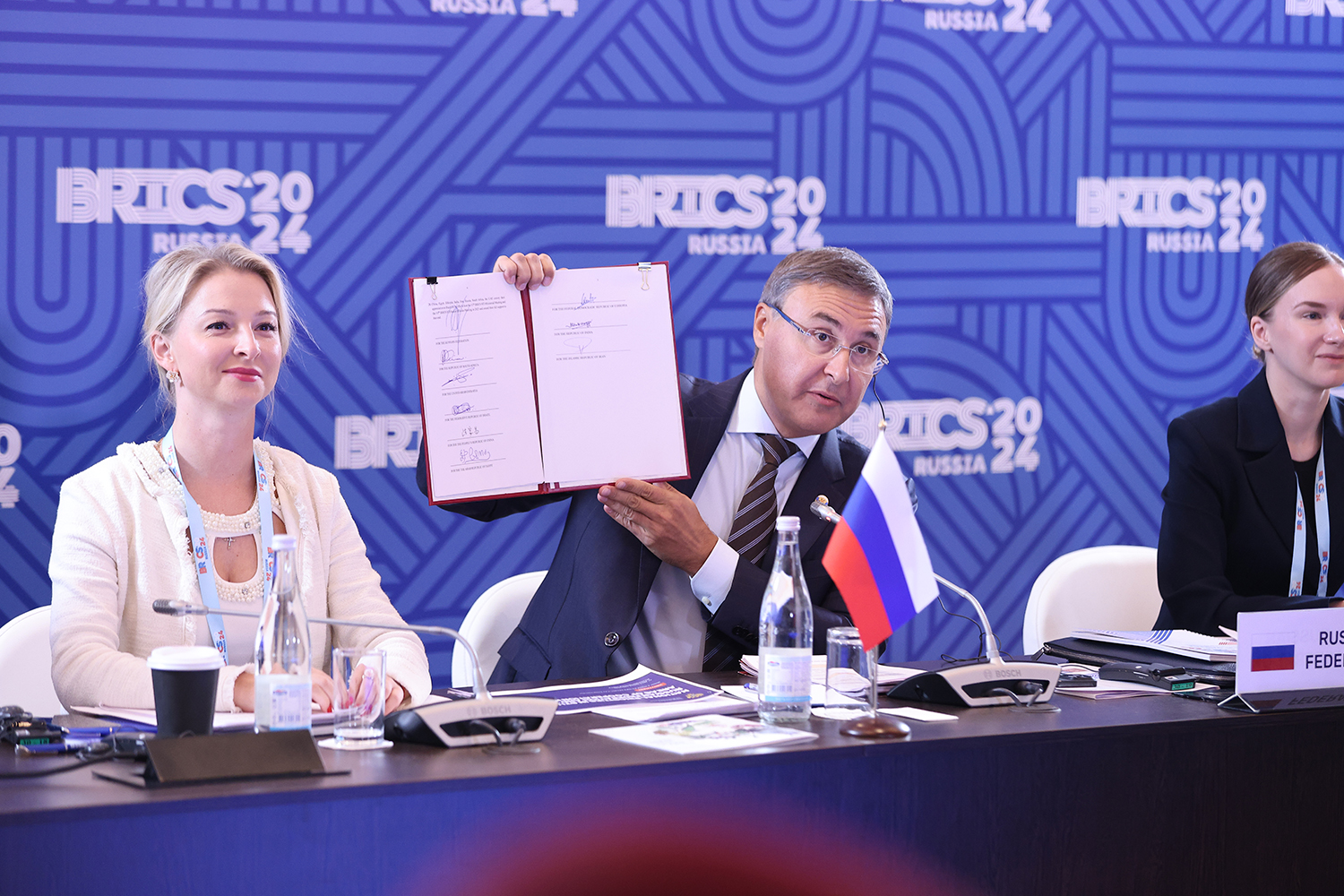On September 26-27, 2024, key BRICS STI events were held in Moscow: the 14th BRICS Science, Technology and Innovation Senior Officials Meeting and the 12th BRICS Science, Technology and Innovation Ministerial Meeting.
 The Senior Officials reviewed the results of the BRICS thematic working groups meetings in 2024 held during the Russian Chairmanship in 2024. The representatives of the BRICS countries noted the success of the events, as well as the active participation of new member countries, while stressing the need to enhance cooperation between the member countries to achieve better results in research and development.
The Senior Officials reviewed the results of the BRICS thematic working groups meetings in 2024 held during the Russian Chairmanship in 2024. The representatives of the BRICS countries noted the success of the events, as well as the active participation of new member countries, while stressing the need to enhance cooperation between the member countries to achieve better results in research and development.
The attendees of the meeting had a detailed discussion on the Russian chairmanship initiatives in the field of science, technology and innovation. Thus, the BRICS STI Senior Officials came to a mutual understanding of the importance of the social sciences and humanities and agreed to establish a dedicated BRICS working group in the near future.
The discussions also focused on the Russian initiative to create a unified approach to scientometric systems and databases in the BRICS countries. As a result of the discussions, the parties undertook to start expert consultations in this area.
During the meeting, the delegates agreed on the draft BRICS STI Calendar of Events for the next year.
The most important outcome of the 14th BRICS STI Senior Officials Meeting was the approval of the draft BRICS STI Moscow Declaration, which was signed the next day by the heads of delegations at the BRICS STI Ministerial Meeting.
 |
 |
The Meeting was chaired by the Russian Minister of Science and Higher Education Valery Falkov. He noted that the BRICS group was going through historical changes: “Today a new multipolar world order is being formed, where countries independently build their future on the basis of national interests and mutually beneficial partnerships. The most successful example of such cooperation is the BRICS group. That is why the motto of the Russian presidency in the association this year is “Strengthening Multilateralism for Just Global Development and Security”. Today BRICS has become one of the few platforms for finding joint responses to global challenges, while demonstrating a steady growth in integration and economic development. According to various estimates, the association accounts for 35 to 37% of global GDP’’.
During the meeting, the parties discussed the cooperation in the field of research infrastructures of the BRICS countries, as well as the prospects for scientist exchange programs, academic mobility and expansion of scientific areas of cooperation of mutual interest. The participants emphasized the successful implementation of the BRICS STI Framework Programme with 6 calls held so far and more than 150 research projects supported by the BRICS countries. Special attention was paid to the collaboration in the area of megasciences research facilities, including carbon sites, as well as the promotion of innovation cooperation through the BRICS Techtransfer Initiative and iBRICS Innovation Network.
The participants agreed on the accession of the new member countries to the existing BRICS Memorandum of Understanding on Cooperation in Science, Technology and Innovation. The signing of the relevant protocol is scheduled for the next BRICS Ministerial Meeting in 2025 in Brazil.
Following the meeting, the Heads of Delegations of the nine BRICS countries signed the Moscow BRICS STI Declaration2024 defining the main areas of cooperation between the BRICS countries in the field of science, technology and innovation for the near future.
